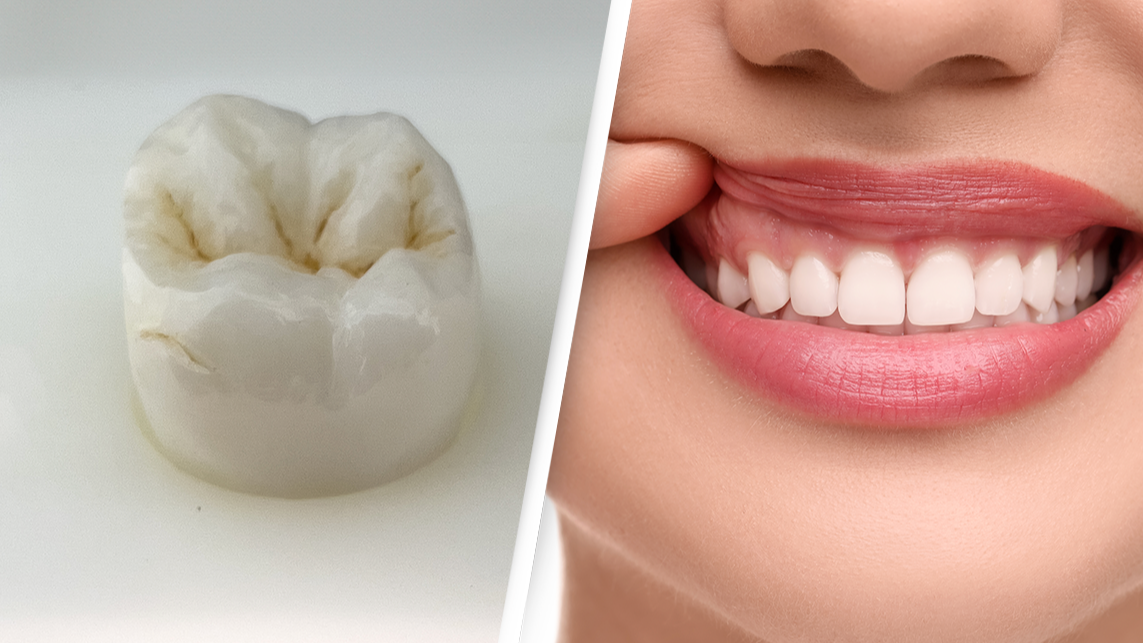Tokyo, Japan – A new medical breakthrough from Japan is now giving hope to people suffering from tooth loss. Japanese scientists have started human trials of a drug that can help regrow human teeth naturally. This drug, developed after years of research, could be a big step forward in dental treatment, possibly replacing artificial options like dentures and implants.
What Is This Tooth Regrowth Drug?
The drug is named TRG-035 and has been developed by a team of Japanese researchers. It works by targeting a specific protein in our body known as USAG-1, which usually prevents the growth of extra teeth. By blocking this protein, the drug allows the body to reactivate tooth buds — small cells responsible for growing new teeth — which are usually inactive after childhood.
How TRG-035 Works
- Blocks USAG-1 Protein: This protein stops new teeth from growing. The drug blocks it so that the tooth-growing process can start again.
- Reactivates Tooth Buds: Once the blockage is removed, tooth buds begin to work again, just like they did when we were kids.
- Given Through Injection: The drug is not applied on teeth or gums. It is injected into the bloodstream so it can work from inside the body.
Animal Trials Show Positive Results
Before testing on humans, researchers tested this drug on animals like mice, ferrets, and dogs.
- Mice: The first tests showed new teeth growing successfully.
- Ferrets: These animals have dental structures close to humans, and the results were encouraging.
- Dogs: Functional teeth grew in dogs too, proving the drug’s effect on different mammals.
These results made the scientists confident enough to begin testing it on humans.
Human Trials Begin at Kyoto University Hospital
The human trials have started in Kyoto University Hospital. Around 30 adults aged between 30 and 64, who are missing at least one tooth, have been chosen for the first phase.
This phase will focus on checking:
- Safety: Whether the drug causes any harmful effects.
- Dosage: How much drug is required for best results.
If this stage goes well, more phases will begin in the future, possibly testing the drug on children born with missing teeth.
Why This Is a Big Deal in Dentistry
The idea of growing your own new teeth is very exciting. Till now, the only options for tooth loss were artificial ones — implants, dentures, or bridges.
Benefits of natural tooth regrowth:
- Looks and feels natural
- Less risk of infection
- Long-lasting solution
- No need for surgery or dental fittings
If TRG-035 becomes successful, it could change how dental problems are treated across the world.
Challenges That Still Remain
While the early results are hopeful, researchers are still careful. Many challenges remain:
- Proving long-term safety
- Handling different body types and ages
- Getting approval from global health authorities
- Managing cost and availability once approved
Experts like Professor Angray Kang and Dr. Chengfei Zhang have appreciated the discovery but have warned that it may take time and careful trials before the drug is ready for public use.
Expected Timeline
If everything goes smoothly, scientists hope that this medicine could be available to the public by 2030. It could help children born without some teeth, adults who lose teeth in accidents, and even elderly people who currently rely on dentures.
Conclusion
Japanese scientists are making history by trying to help people regrow teeth naturally. With TRG-035, we may soon see a world where tooth loss is no longer a permanent problem. While we still need more tests and approvals, this could become a revolution in dental care — a future where we grow back what we once lost.

